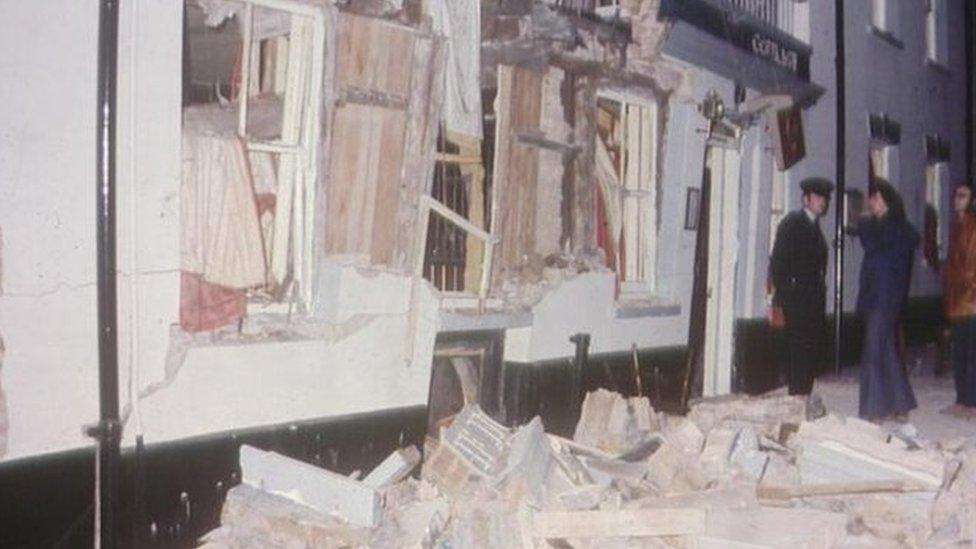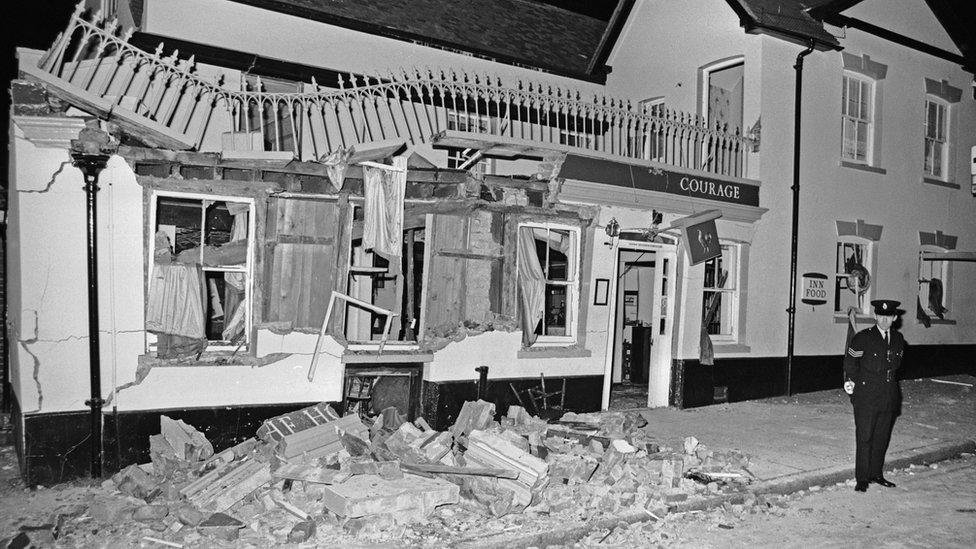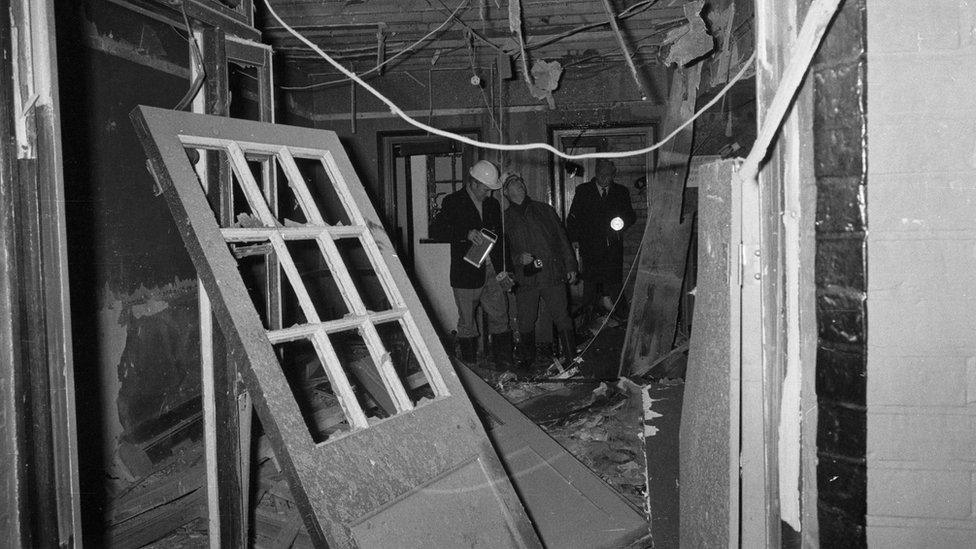Guildford pub bomb inquest timeline 'fatally flawed'
- Published

The first bomb at the Horse and Groom killed five people
The Guildford pub bomb inquest has made a "fatal" error by saying the 1974 attacks were the start of an IRA terror campaign, a family has claimed.
The inquest is using a finding from an inquiry in the 1990s, that the bombings were "the first in a new wave of Provisional IRA attacks in England".
Cassandra Hamilton said the IRA bombed Army sites from 1973 and the sister she lost could have been protected.
Surrey Coroner Richard Travers has been approached for comment.
Four soldiers and a civilian died and 65 were injured in bombs at two pubs on 5 October 1974. The Guildford Four and Maguire Seven were wrongly-convicted before the IRA claimed responsibility.
KRW Law, which is representing the family, said the IRA threat escalated from 1973 onwards and the family wanted to know why the system failed to protect loved ones in the face of a violent campaign.
Lawyer Christopher Stanley asked: "Was this failure to act a conscious decision or a tragic omission?"
Ms Hamilton has previously asked why her sister's barracks were not on lockdown.

Caroline Slater, 18, Ann Hamilton, 19, William Forsyth, 18, John Hunter, 17, and plasterer Paul Craig, 21, died in the first explosion at the Horse and Groom
Ms Hamilton, whose requests for legal aid and a jury were refused, said: "Ann...was serving in the British Army and was murdered in an IRA bombing which was the culmination of a bombing campaign which had targeted military objectives since 1973. It was not the start of an IRA bombing and incendiary campaign. Therefore, the purpose of this inquest is fatally flawed."
KRW Law, who have been unable to attend hearings because of lack of legal aid, have compiled a chronology of attacks highlighting military targets that predated Guildford.
The list includes incidents at the Union Jack Club, London; the Royal Naval Association; London, the Household Cavalry Camp, Surrey, all in 1973, and the M62 coach bombing on the M62 in February 1974.
Lawyers have also uncovered a memo dated 1 November 1973 between Home Secretary Robert Carr and Prime Minister Edward Heath which they said demonstrated the severity of the IRA threat.

Wrongly-convicted Gerry Conlon, Paddy Armstrong, Paul Hill and Carole Richardson served 15 years in jail
Meanwhile, the BBC has viewed files at the National Archives relating to military security in 1974.
Papers show the Army's South East District was briefed on 23 May 1974 about a threat from Peter McMullen - a soldier who had deserted and joined the IRA in 1972.
However, a letter stated it was felt the information - a map of Aldershot barracks found at an IRA safe house in Liverpool - "did not warrant increasing the state of security alert".
Documents show McMullen later admitted bombing Claro Barracks in Yorkshire in March 1974 with another IRA member.
In interviews, McMullen told police he left the IRA and did not carry out any other attacks in England. He was convicted in 1996.
The IRA went on to plant bombs at a soldiers' pub in Warminster in December 1974 and Aldershot railway station as soldiers went home for Christmas.

Follow BBC South East on Facebook, external, on Twitter, external, and on Instagram, external. Send your story ideas to southeasttoday@bbc.co.uk.
Related topics
- Published14 January 2022

- Published13 January 2022
